#Goetic
Text

#funny#lol#not my oc#funny memes#summon#sigils#sigil magic#lasagna#witchy humor#witchy#witchcraft#dank memes#meme#humor#funny shit#lord cabbagedick#goetic#seal
3K notes
·
View notes
Text
Stolas or Furfur are not "goetias". Ars Goetia is the name of a grimoire they're in. It's like calling Archangel Michael "a Bible". Just call them goetic demons, it's not hard.
- Signed, a demon worker.
#czortposting#ars goetia#goetic demons#goetia#demons#demonology#goetic#witchblr#occult#demon work#demon worker#demonolatry#theistic satanist#theistic satanism#luciferian#luciferianism#occultblr#witches of tumblr
162 notes
·
View notes
Text

#artists on tumblr#bune#bime#demonology#lemegeton#goetia#goetic#demon#illustration#digital#painting#griffon
54 notes
·
View notes
Text
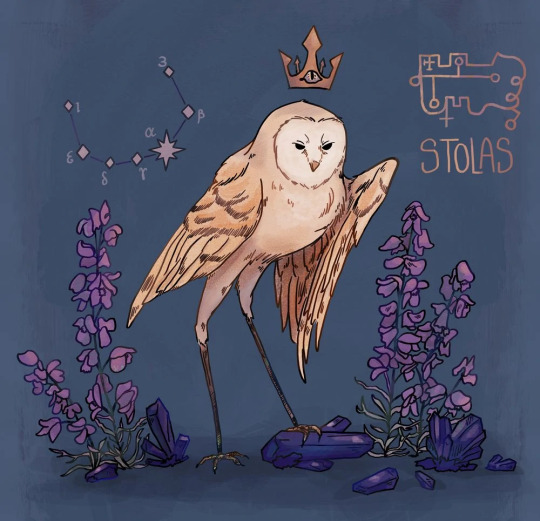
#stolas#prince stolas#real prince stolas#ars goetia#goetia#goetic#goetic demon#demon prince#owl demon#demonolatry#demonology
56 notes
·
View notes
Text
Prince Seir

"A beautiful man, riding upon a winged horse"
"He can pass the whole earth in the twinkling of an eye"
Also called "Sear" or "Seere"
Source: the lesser key of solomon, ars goetia, translation by Dr. L. W. De Laurence.
All my work on demons is for symbolism and not to be used in bad faith or to do harm. Of course none of my work should be used for harm anyway.
For inktober saddle
#inktober#inktober 2023#inktober saddle#demonology#occult art#ars goetia#prince seir#seere#sear#goetic
4 notes
·
View notes
Text
When I was younger I got obsessed with occult symbolism, no surprise given my taste in music and video games. I never learned much back then but I always doodled like spell/summoning circles like this kinda stuff
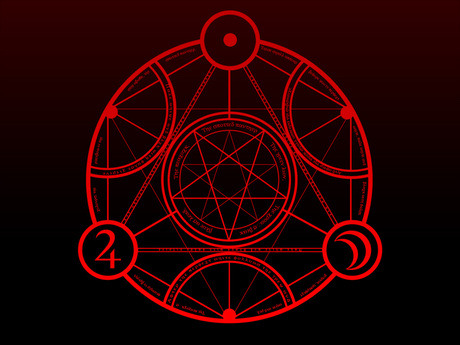
That’s what I always wanted to get really good at drawing for whatever reason? So anyway I tried my hand at crafting an evocation/communion circle based off my loose knowledge of demonic pantheons and stuff, note it’s not nearly complete

But given this preview, gimme your thoughts occult side of tumblr
#No I haven’t studied this stuff much nor am I currently a serious practitioner#just have an interest in the stories and and history of it all and I like it’s vibe#occult#occultism#witchblr#demonology#magic circles#biblical demons#magick#my art#chibelial doodles#pentagrams#pentacles#seals#goetic
8 notes
·
View notes
Text
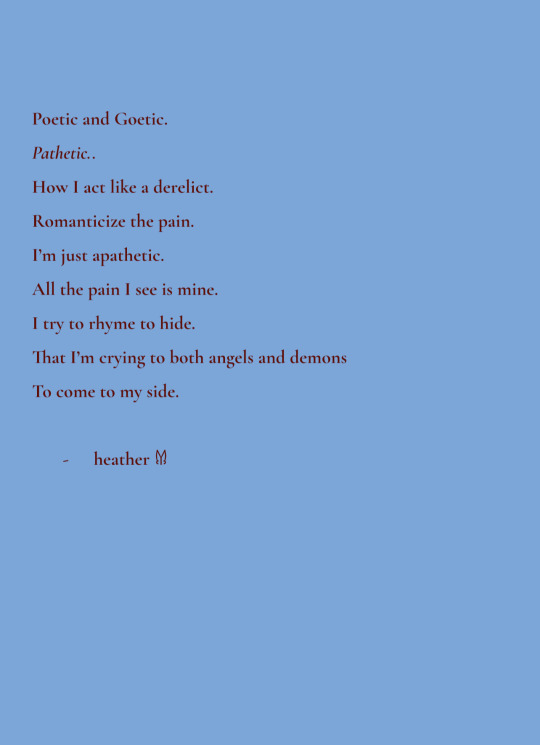

“Poetic and Goetic” by heather 𐀔
2 notes
·
View notes
Text
I'm jealous of people who can work with so many types of spirits and deities. I went through god, angels, spirit guides, the norse gods, the greek gods... And the only ones to have stuck with me are some demons and Lucifer.
They knew I was theirs since I was very young, no matter how much my mother tried to turn me into a Christian. The very first time I so much as heard of god and angels, there was something telling me they weren't for me. Even when I got the chance to speak with them, they gave me the cold shoulder. I didn't know any better then, but I know why now.
#a little vent#witchcraft#pagan#witchblr#witch#norse paganism#paganism#necromancy#cthonic#death witchcraft#demonolatry#goetic#goetia#ars goetia#ave luciferi#luciferian
14 notes
·
View notes
Text

if you know you know
3 notes
·
View notes
Text
youtube
#lhp#left hand path#occult#youtube#sister Satan#demonolatry#demonic men#shemyaza#goetic#goetic demons#luciferian#lucifer is god#theistic luciferian#luciferianism#spiritual luciferian#theistic luciferianism
1 note
·
View note
Text
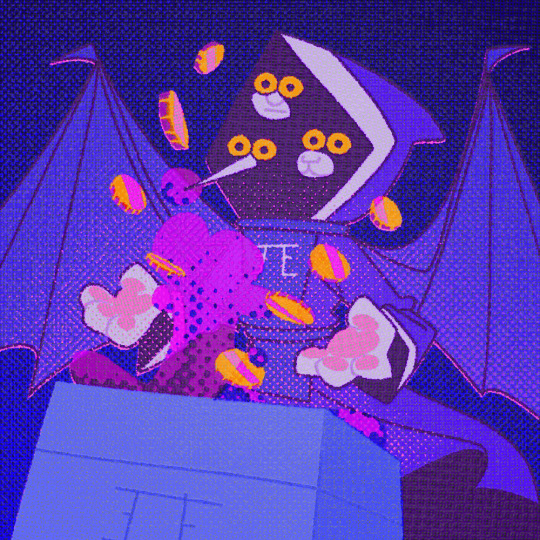
bune said I must dedicate 2 pieces of artwork per week to her, but she never said what kind of artwork... also she's on a puzzle
#artists on tumblr#demonology#bune#bime#ars goetia#thaumcraft#modded minecraft#thaumaturge#demon#goetia#goetic
45 notes
·
View notes
Text
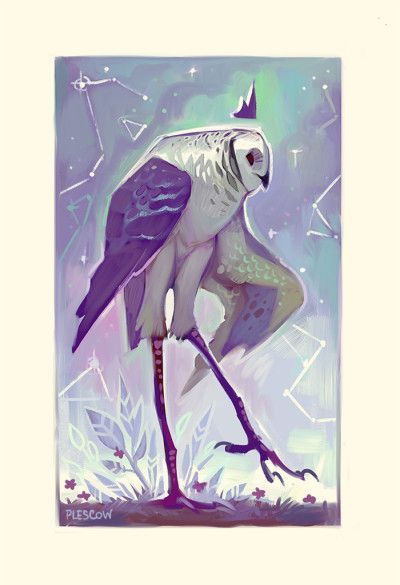
#stolas#prince stolas#real prince stolas#ars goetia#goetia#goetic#goetic demon#demon prince#owl demon#demonolatry#demonology#baby demonolator#demonolator#demonologist
48 notes
·
View notes
Text
I think the PEAKEST villain character design of this era tbh is "What if Aslan was Lucifer/Satan" aka The Winged Lion


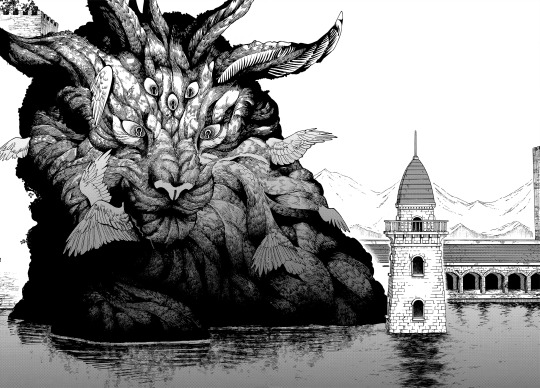
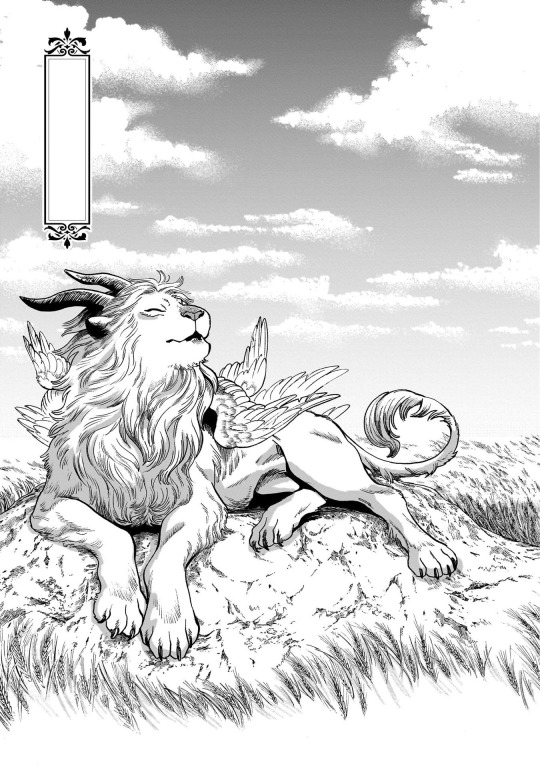
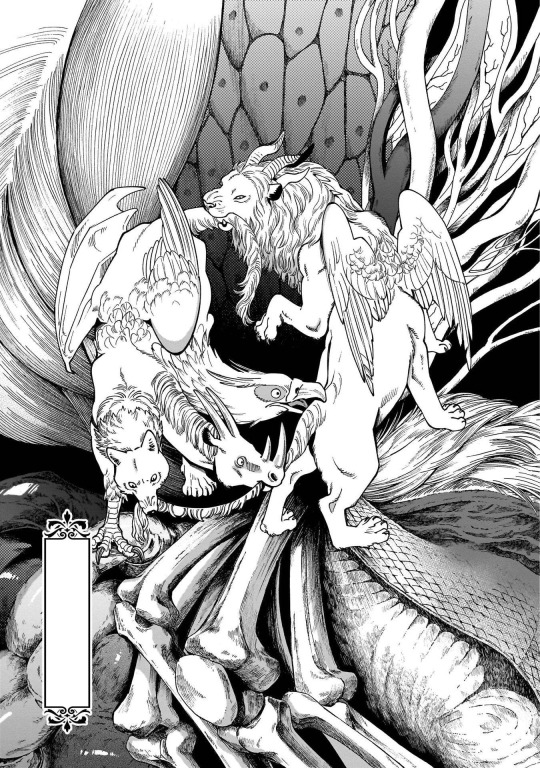
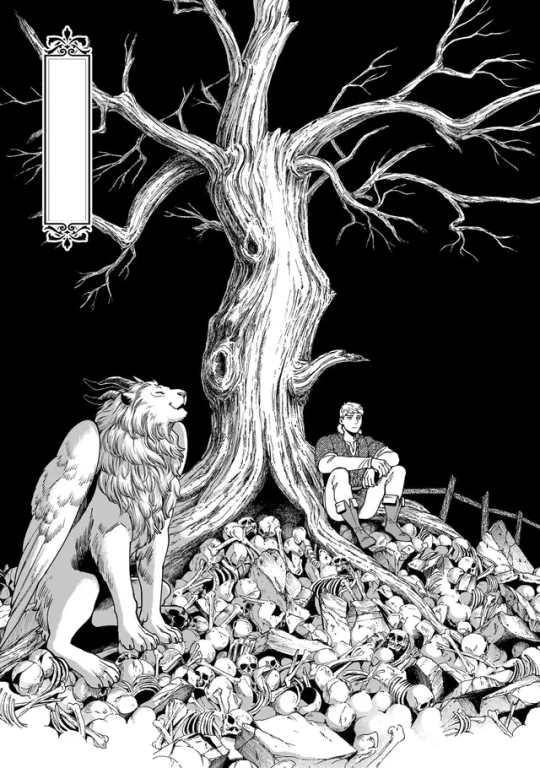
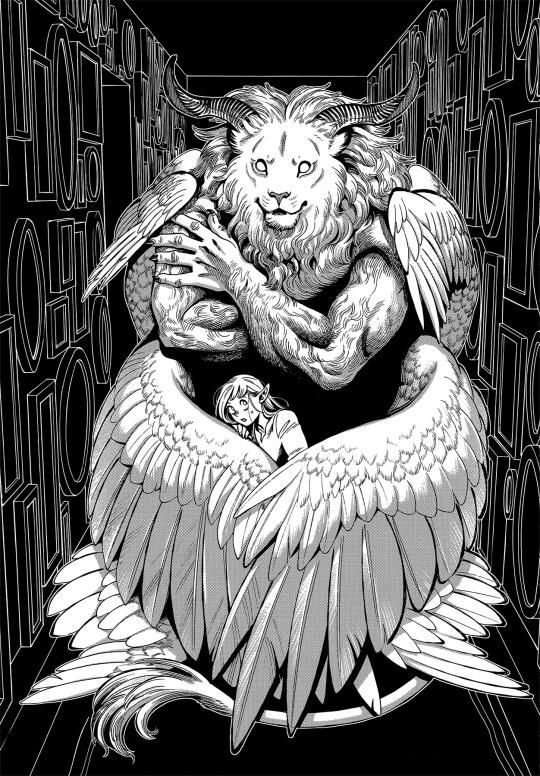

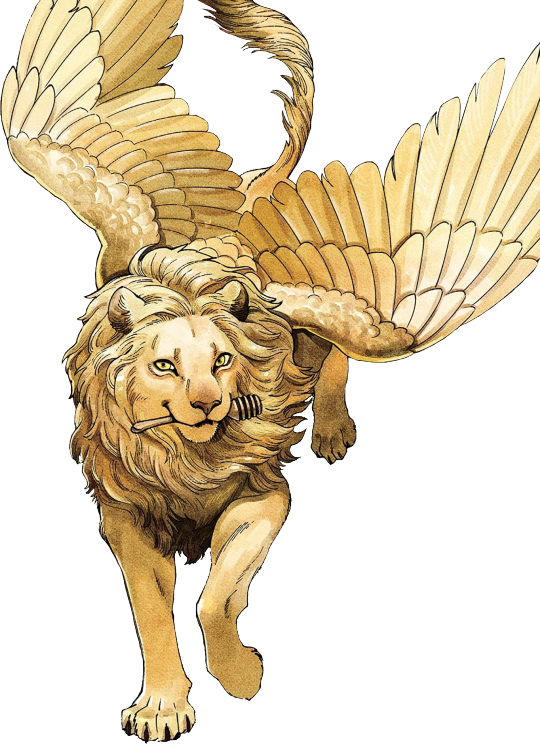
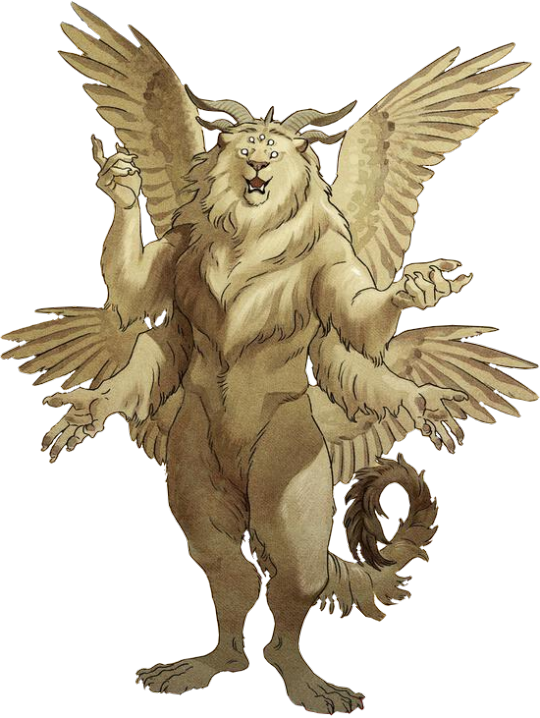
ᛗᚴ ᚺᚣᛗᛊ ᛨᛢ ƂᏌᛊᏒ
#raw#let's take ibuprofen together#winged lion#dungeon meshi#delicious in dungeon#marcille dungeon meshi#goetic demons the aesthetic#🦁♌#manga art
3K notes
·
View notes
Text
Dis/nomers: On misnomers, magic-metaphors, and life in general
So, here's the thing: a lot of societal and cultural metaphors around magic and occultism are in the so-called West, frankly, bad and a product of the imprecision in the English language about "power", which themselves are inherently modelled on industrial-capitalist frameworks thanks to the Industrial Revolution, and steam power.
Think about what you mean when you use the word "power" or "intent" and ask yourself whether you are once again running on 19th Century (colonialist ideas: for example see non-Indigenous misconceptions of mana) that boil down to thinking you're a steam engine or some sort of closed system - because that's what the whole popular idea of energy comes from.
Why? Because willpower doesn't really exist.
Now something seems to be going on, when we do certain things. But are we hoodwinking ourselves - barking up the wrong tree, being led down the garden path -by the porting in pop-metaphor? Sure, it's easier, but is the apparent ease and clarity obscuring insights? Is it preventing us from taking our place as part of a living world; not clockwork and piston but inter-and-intra-relating, inter-and-intra-being in an 'animist' cosmovision?
Consider the metaphors you use, and wonder how they're using you. Because they are - we are thinking-with-and-being-with the ongoing worlding of a daimonic (agential) kosmos.
And that All is doing the same-with-us.
Remember, changing the metaphors we use can change the way we think, and how we are in the world.
This is why I mutter about kenning, as found in Old Norse poetry, but also as a method of indirectly approaching experience by folding in the world. Kenning is, in one sense creating a poetic metaphor, a circomlocution that describes a thing without direct nominalisation. A wheelchair user can be a throne-walker; the sea is not just the sea, it is the whale-road and also Aegir's-cauldron, Poseidon's-stable, etc etc.
"It is no coincidence that a kenning is a poetic term of art, a doubling and metaphoric circumlocution of a singular noun or thing – the sea becoming the “whale-road”, a sword seen as the “icicle of red shields”. A singular referent now exceeds itself, drawing the relationality with the whole world of those present. This indirectness, far from detracting from the referent, deepens the knowing. Each portion of the kenning exceeds itself also, thusly thickening the field of the sword or sea, and, in enhancing its relationality, enlivens each further.
Further, this means that the poet acknowledges the excess of the referents, comprehending that kenning may build on kenning, and the full, totalistic mapping of a referent is doomed to fail in terms of completion.
This goes even beyond the usual aphorism from astronomer Carl Sagan: “If you wish to make an apple pie from scratch, you must first create the universe.” For each element of the apple pie is capable of being defined by the relationality of all presences, in all forms, positions, and configurations in all possible and impossible universes – and each of these in turn relate to each other as they will.
This then, is the joy and horror, the wonder and terror of an animate, fluxing kosmos – there is always more."
- Goêtic Atavisms, Frater Acher & Craig 'VI' Slee
(See link above: also available on Amazon as well as from the publisher if you need that)
Do we want to live in a world circumscribed by misnomers, grandfathered in with extractive and clunky ways of perceiving the world? Or do we want to embrace the dis/abling wyrd strangenesses of the numinous?
The liberatory power of the dis/nomer - the radical proposition that there is always more than can be named, can be contained? That we might ken more if we embraced blurry, uncertain periphalisms which spiral endlessly inward and down into pandaemonic, living, breathing labyrinths?
If we immersed ourselves in relational eddies, tides and gyres eternally returning-and-coming-forth-again - dis/membered and re-membered anew? To dive into currents and flows - the multiplicitous assemblage of influences which are the very bodyof the oceanic river which Herakleitos warned us that we could never enter in the same place twice?
What might we notice is already happening, already ongoing, that we are amidst, then? Might we spot the plurality of Minotaurs engaging in their diasporic fugitivity, nomads in their myriad labyrinths, far older, wiser, and weirder than we thought we knew?
Spaces of monstrously numinous sanctuary, far beyond the ken of the Theseus (their supposed slayer) and his identitarian regime of denial, his heroic ever-intact status quo. Pity the ship-builders in their labour; they work do so under the threat of sword - or is it gun and bomb, these days?
But while Theseus abandons Ariadne, Dionysos does not! And while Theseus eschews the sea route to perform his labours in order to gain heroic glory and satisfy ambition, his oceanic ancestry has the last laugh - both mortal father Aegeus (thrown into the sea that bears his name) and he (thrown off an island cliff - presumably into the ocean) were reclaimed; seized by the sea and its thundering white horses. What might it be, to be oceanically possesed as that hero's mother was? To have one's soul-sea stirred by the Earthshaker?
We can but dream on the matter - while also slyly noting that Athenians kept the Ship of Theseus preserved, as mark of divine heritage in their feted city ruled by the demos. What matters now, in these days when even politicians talk of the so-called "will of the people", is matters of ancestry and history dismissed; lineages of language and its many influences ignored - no entanglements here, vine or otherwise, we assure you!
But thankfully, the ship-builders know the way of wood and net and weave. They know how many planks pass through their hands, how many nails struck, how much pitch is brewed. They know there's more. They're craftsfolk after all - assemblages are their business, whatever the material - they know what mattering is.
And isn't it interesting that the Temple of Hephaistos in Athens was once mistakenly called the Thesseion - The Temple of Theseus, before the moderns realised their mistake?
Watch the words we use, and how they use us.
Be seeing you.
72 notes
·
View notes

